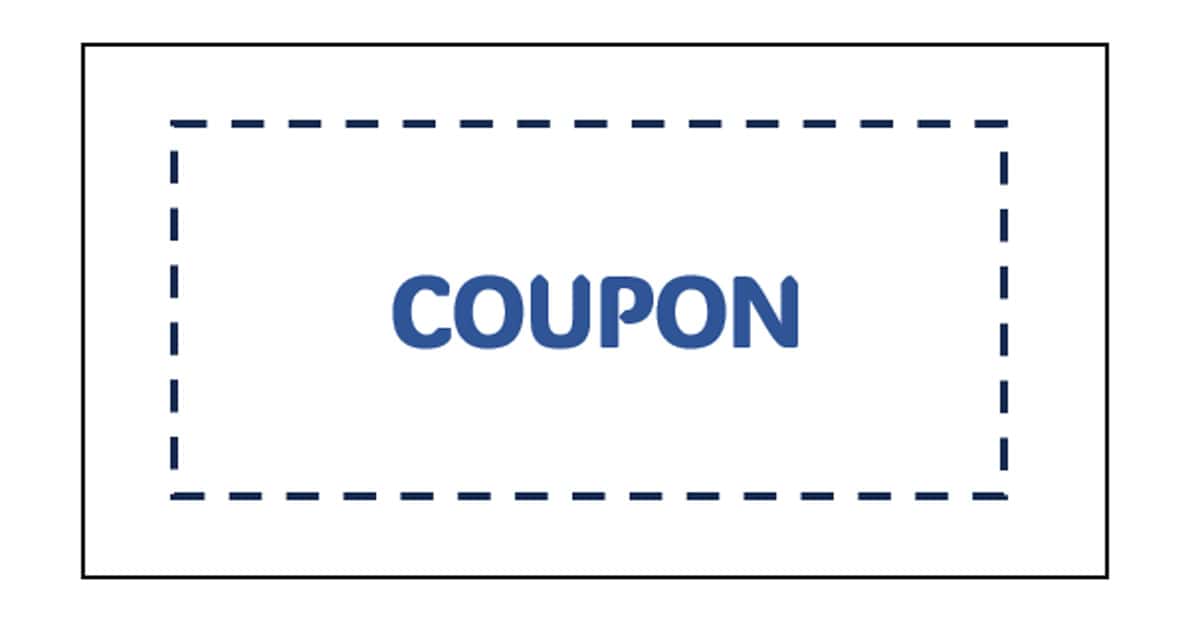Patient Intake Forms: The #1 Unexpected Challenge Hindering Your Healthcare Transformation

Patients and caregivers also ask
Filling out new forms, even if your information is already in the electronic health record (EHR), is necessary for several reasons:
- Updates and Changes: Your personal health information may have changed since your last visit, and physicians need the most current details to provide appropriate care.
- Specific Visit Requirements: Different appointments may require different forms or consents tailored to the specific type of care or treatment you are receiving.
- Legal Compliance: Regularly updating information ensures compliance with legal and privacy regulations, protecting both you and the healthcare provider.
- Accuracy and Redundancy: Relying solely on stored electronic data can lead to errors or oversights. Re-verifying your information helps maintain accuracy and reduces the risk of mistakes.
Completing intake forms can significantly improve your overall healthcare experience in several ways:
- Accurate Diagnosis: Providing detailed and up-to-date medical history and current symptoms allows healthcare providers to diagnose conditions more accurately and tailor treatments specifically to your needs.
- Efficient Care Coordination: Thorough intake forms facilitate better communication and coordination among different healthcare providers, ensuring a seamless transfer of information and continuity of care.
- Reduced Financial Surprises: By verifying insurance information and understanding coverage details, you can avoid unexpected costs and make informed decisions about your treatments and financial responsibilities.
- Enhanced Patient-Provider Communication: Intake forms that include your preferences, concerns, and questions can lead to more meaningful and productive conversations with your healthcare providers, fostering a stronger patient-provider relationship.
- Legal and Ethical Assurance: Completing consent forms and legal documentation ensures that you are fully informed about your care, protecting your rights and fostering trust and transparency with your healthcare providers.
Patient intake forms contribute to a more accurate diagnosis and personalized care in several key ways:
Comprehensive Medical History: These forms capture detailed information about your past medical conditions, treatments, surgeries, and family health history, providing a complete picture for the healthcare provider to consider when diagnosing current issues.
Current Symptoms and Concerns: By describing your current symptoms and health concerns in detail, intake forms help healthcare providers pinpoint potential diagnoses and tailor their examinations and tests accordingly.
Medication and Allergy Information: Including information about current medications and any allergies helps prevent adverse reactions and ensures that any new treatments are safe and compatible with your existing regimen.
Lifestyle and Social Factors: Intake forms often ask about lifestyle choices, such as diet, exercise, smoking, and alcohol use, as well as social factors that might impact your health. This context allows providers to recommend personalized lifestyle modifications and interventions.
Specific Preferences and Needs: Providing information about your preferences for treatment, communication, and care helps healthcare providers to customize their approach, ensuring that your care is aligned with your values and expectations.
The specific information on the forms that is crucial for your healthcare provider to know includes:
- Medical History: Details about past illnesses, surgeries, and treatments provide a comprehensive background that informs current care decisions.
- Current Medications: A list of all medications you are currently taking, including dosages and frequency, helps prevent interactions and ensures continuity of care.
- Allergies: Information about any allergies to medications, foods, or other substances is vital to avoid adverse reactions.
- Current Symptoms and Chief Complaint: Clearly describe your current symptoms and the primary reason for your visit. Being ready to discuss this helps the provider focus on the most pressing issues.
- Family Health History: Information about the medical conditions of close family members can indicate genetic or hereditary risks.
- Lifestyle Behaviors and Social Factors: Details about your diet, exercise, smoking, alcohol use, and social environment help tailor lifestyle recommendations and interventions.
- Insurance Information: Accurate insurance details ensure that billing is handled correctly and you understand your coverage.
Taking the time to fill out these forms seriously ensures that you are well-prepared for your appointment. It demonstrates your readiness to answer routine questions, shows that you understand why you are visiting the practice, and prepares you for an in-depth conversation about your health. This proactive approach not only facilitates a more efficient and effective healthcare experience but also empowers you to be an active participant in your care.
Verifying insurance information through intake forms prevents unexpected costs by ensuring that both you and the healthcare provider have the most up-to-date information about your coverage. Here’s how it helps:
- Deductibles and Co-pays: Accurate insurance details provide clarity on your current deductibles and co-pays, allowing you to know upfront what out-of-pocket expenses you might incur during your visit.
- Pre-authorizations: Verifying insurance helps identify any treatments or procedures that require pre-authorization. This step avoids delays and denials, ensuring that necessary approvals are obtained before your appointment.
- Coverage Information: Up-to-date insurance information ensures that the clinic can accurately determine what services are covered, minimizing the risk of receiving services that are not reimbursed by your insurance.
- Streamlined Communication: Having precise insurance details allows the clinic to efficiently communicate with the insurance company, resolving any issues quickly and reducing administrative burdens.
- Enhanced Experience: By addressing insurance matters beforehand, your time at the medical practice is more focused on your health needs rather than financial concerns, making your visit more enjoyable and stress-free.
Overall, verifying insurance information through intake forms ensures financial transparency and smooths the administrative process, allowing you to focus on receiving the best possible care without worrying about unexpected costs.
To streamline the intake process for future healthcare visits, you can take the following steps:
- Prepare in Advance: Gather your medical history, current medications, allergies, and insurance information before your appointment. Keeping this information updated and easily accessible will save time during the intake process.
- Use Patient Portals: Many healthcare providers offer online patient portals where you can fill out and update forms before your visit. Utilize these tools to complete paperwork ahead of time.
- Understand Your Insurance: Familiarize yourself with your insurance coverage, including deductibles, co-pays, and pre-authorization requirements. This knowledge helps avoid surprises and speeds up the verification process.
- Stay Organized: Maintain a personal health record that includes past medical history, treatments, and any changes in your health status. Bring this record to each appointment for quick reference.
- Communicate Clearly: Be ready to clearly explain your chief complaint and current symptoms. This helps healthcare providers focus on your primary concerns efficiently.
How Patient Better Can Help:
- Educational Tools: Patient Better offers resources and tools to educate you on how to manage your health information effectively.
- Health Advocacy Training: Through Patient Better’s program, you can learn the principles of smart health advocacy, empowering you to take an active role in your healthcare.
- Organizational Support: Patient Better provides proprietary tools to help you keep your health records organized and accessible, making the intake process smoother and more efficient.
By taking these steps and utilizing the resources offered by Patient Better, you can streamline the intake process, making your healthcare visits more efficient and less stressful.
Now, an Introduction to Intake Forms
Patient Intake Forms News – It’s a situation many of us have encountered: Sitting in a sterile waiting room, clipboard in hand, looking down at pages of seemingly redundant paperwork. You’ve just been handed forms to fill out, and your appointment is in ten minutes. You can’t help but feel frustrated, thinking, "Haven’t I done this before?"
Meet Jane, a mother of two, who recently experienced this very scenario. Jane had taken a day off work to take her daughter to a specialist. Arriving on time, she was handed a stack of forms, each asking for information she felt she’d provided countless times before. As she scribbled her way through the paperwork, she couldn’t help but feel that this was a needless barrier standing between her daughter and the care she needed.
But is it truly needless? Or is there more to this common practice than meets the eye? In this article, we’ll unravel the reasons behind medical paperwork and how understanding its importance could not only streamline your healthcare experience but also make you a more empowered and effective health advocate, aligning with the principles of Patient Better’s program. We’ll explore why filling out these forms isn’t merely a bureaucratic task but a vital step in receiving personalized, effective healthcare.
The Importance of Paperwork
The seemingly mundane task of filling out paperwork serves as a critical foundation for healthcare delivery. It’s more than a mere formality; it’s a necessary process with multiple facets. These various components are instrumental in crafting a healthcare experience that is tailored, efficient, and protects both the patient and the provider. By recognizing and embracing the importance of patient intake forms, individuals can become active participants in their healthcare journey, paving the way for better communication, understanding, and outcomes.
- Medical History & Current Symptoms: Understanding a patient’s medical history and current symptoms is essential for accurate diagnosis and treatment. This information helps physicians to identify underlying conditions, allergies, and other factors that could influence care.
- Benefit: A detailed and accurate medical history leads to personalized care, avoiding potential risks, and ensuring appropriate treatment that aligns with the patient’s unique needs.
- Insurance Verification: Verifying insurance information is crucial for understanding coverage and ensuring that billing is handled correctly.
- Benefit: This process simplifies financial aspects of care, helps both patients and providers avoid unexpected costs, and enables patients to make informed decisions about their treatments and financial responsibilities.
- Legal Requirements: Paperwork often includes consent forms and legal agreements that protect both patients and healthcare providers. Informed consent is not just an ethical necessity but a legal requirement.
- Benefit: Proper legal documentation ensures that patients are fully informed about their care and protects their rights, fostering a transparent and trustworthy relationship with healthcare providers.
- Coordination of Care: Proper documentation aids in the coordination of care among various healthcare professionals.
- Benefit: A seamless transfer of information ensures continuity and efficiency in patient care, enhancing the quality of care, minimizing delays, and leading to a more cohesive healthcare experience.
While paperwork may seem tedious and repetitive, each form serves a specific and essential purpose. The collected information acts as a bridge connecting patient needs with appropriate care, guiding financial matters, ensuring legal compliance, and fostering communication among healthcare teams. By recognizing the significance of this process, we can approach it not as a hindrance but as a meaningful step in our healthcare journey.
Addressing a Common Misconception: The Electronic Health Record Myth
A prevalent misunderstanding among patients is the belief that their information is already stored in the physician’s electronic health record system from previous visits. This belief often leads to frustration when asked to fill out paperwork again. However, here’s why this process remains necessary:
- Updates and Changes: Personal health information can change between visits, and physicians require the most current information to provide appropriate care.
- Different Forms for Different Purposes: Even if some information is stored, different visits may require different forms or consents.
- Legal Compliance: Repeated verification of information ensures compliance with legal and privacy regulations.
- Avoiding Over-Reliance on Electronic Systems: While electronic systems are valuable, they are not infallible. Relying solely on stored data might lead to errors or oversights.
By understanding that the paperwork process is not merely a repetition but a critical part of ongoing healthcare management, patients can become more proactive and engaged, aligning with the principles of smart health advocacy.
Applying Smart Health Advocacy
In an era where personal responsibility and active participation in healthcare are becoming essential, the principles of smart health advocacy championed by Patient Better’s program resonate profoundly. Understanding paperwork is more than a bureaucratic step; it’s an integral part of being an informed and empowered health consumer.
- Proactive Engagement: Filling out paperwork with care allows patients to actively participate in their healthcare process. It’s an opportunity to review and provide precise information, fostering better communication with healthcare providers.
- Empowering Patients: By understanding the purpose behind each form, patients take control of their healthcare journey. They are not merely recipients of care but active participants, advocating for their well-being.
- Aligning with Patient Better’s Principles: The philosophy behind Patient Better emphasizes education, empowerment, and efficiency. Understanding the necessity of paperwork aligns perfectly with these principles, teaching health consumers to navigate healthcare more adeptly.
- Mitigating Risks and Enhancing Care: Taking the paperwork process seriously minimizes errors and misunderstandings. It sets the stage for more personalized, effective healthcare, aligning with the goal of maximizing patient outcomes.
- Promoting a Culture of Understanding: Patient Better’s program encourages a broader understanding of the healthcare system. By demystifying paperwork, patients become more comfortable with other aspects of healthcare, building trust and collaboration between patients and providers.
Smart health advocacy is not about passively receiving care but actively engaging with it. By embracing the paperwork process, understanding its importance, and aligning with the principles of Patient Better, individuals can become more proficient health consumers. It transforms a seemingly mundane task into a proactive step towards better health, aligning perfectly with the goals of Patient Better’s health advocacy educational program.
Embracing the Paperwork Process: A Path to Empowered Healthcare
As we have explored, the paperwork process in healthcare is far from a redundant formality. It’s a complex and necessary aspect that ensures accurate diagnosis, proper insurance handling, legal compliance, and effective care coordination. The belief that information is merely duplicated in electronic health records is a misconception, one that can lead to oversights or errors.
The Patient Better program underscores the importance of smart health advocacy, turning what might be seen as a chore into an empowering step in a patient’s healthcare journey. Embracing the paperwork process is more than just filling out forms; it’s a commitment to understanding one’s health, communicating effectively with healthcare providers, and actively participating in the path to wellness.
Actionable Steps:
- Be Informed: Understand that each form serves a specific purpose and contributes to your healthcare.
- Stay Engaged: Actively participate in the process by providing accurate and updated information.
- Trust but Verify: Rely on electronic systems, but recognize the value of human oversight.
Embrace Patient Better’s Principles: Utilize the educational tools provided by Patient Better to become a more informed and proactive health consumer.
By redefining the way we view and approach paperwork, we not only make our healthcare experience more efficient but also contribute to better health outcomes. It’s a transformation of perspective that aligns perfectly with the empowering philosophy of Patient Better’s program, turning a seemingly mundane task into a meaningful engagement with our healthcare.

Conclusion: Transforming Healthcare Through Smart Health Advocacy
Healthcare is a complex system, often mystified by jargon, procedures, and paperwork. However, understanding and actively engaging in these processes, such as the seemingly mundane task of filling out paperwork, can lead to substantial improvements in diagnosis, recovery, patient experience, and overall health outcomes.
By embracing the principles of smart health advocacy, individuals can achieve:
- Faster and Accurate Diagnosis: By effectively communicating personal medical history and symptoms, individuals can aid healthcare providers in quickly identifying underlying health issues. This not only expedites the diagnostic process but also ensures more targeted and suitable care.
- Improved Recovery: Actively engaging in one’s healthcare journey and understanding treatment plans can significantly enhance recovery rates. This empowerment leads to better adherence to prescribed treatments and a more positive healing process.
- Enhanced Patient Experience: Building health literacy skills fosters a stronger connection and collaboration between patients and providers. This can lead to greater trust, comfort, and satisfaction within the healthcare experience.
- Positive Health Outcomes: Emphasizing health literacy and patient engagement as part of a holistic healthcare approach directly contributes to better overall health outcomes. By becoming a proactive health advocate, individuals are more likely to adopt healthier lifestyles and make informed decisions that positively impact their long-term well-being.
These points align with the principles of smart health advocacy and emphasize the tangible benefits that can be achieved through active participation and understanding within the healthcare system.If these principles resonate with you, exploring a health literacy program like Patient Better’s might be the right path. By becoming an informed health advocate, you’ll not only take control of your healthcare journey but also contribute positively to your well-being.
Consider Patient Better’s Program: If you’re looking to navigate healthcare more efficiently, empower yourself with the knowledge, tools, and support offered by Patient Better.
Embrace Health Advocacy: Understand that every aspect of healthcare, even filling out paperwork, is an opportunity to advocate for yourself, leading to better care.
Healthcare is not a one-size-fits-all system. By embracing the role of an informed health advocate, you can personalize your journey, improve your experience, and align yourself with better health outcomes. The path to empowered healthcare awaits – take the first step with Patient Better today.
End of article.
Disclaimer
The information provided here is for educational and entertainment purposes only. It is not intended as, nor should it be considered a substitute for professional medical advice, diagnosis, or treatment. Always seek the advice of your physician or other qualified health provider with any questions you may have regarding a medical condition. If you think you may have a medical emergency, immediately call 911 or your local emergency number.
Recommended Reads
If you found this article insightful, enhance your health advocacy journey with these carefully selected reads, chosen to deepen your understanding and empower your healthcare decisions.
Is learning a health advocacy program right for you?
Patient Better is a groundbreaking, all-in-one solution that empowers individuals to become recognized health advocates. With our comprehensive Health Advocacy Program, we provide aspiring advocates with the knowledge, skills, and resources needed to navigate the complexities of the healthcare system effectively. This unique program covers a wide range of topics, from understanding medical concepts, processes, and financial intricacies, to learning effective communication skills, patient advocacy techniques, and the importance of holistic wellness. Participants will emerge with a comprehensive skill set that enables them to navigate the healthcare landscape with confidence and positively impact their lives.
By enrolling in the Patient Better Health Advocacy Program, participants gain access to expert-led training sessions, interactive workshops, and real-world case studies. The curriculum is thoughtfully designed to equip advocates with practical tools to support patients and their families during challenging medical situations. As advocates, they learn to bridge the communication gap between healthcare providers and patients, ensuring that medical decisions are well-informed and aligned with the patient’s best interests.
Consider purchasing the Patient Better Health Advocacy Program if:
You or your family are facing challenges in communicating, coordinating, or collaborating on your healthcare efficiently and effectively.
You or your family have received a medical diagnosis and seek to minimize errors, oversights, and uninformed decisions.
You or your family are looking for a cost-effective solution to navigate and understand your health journey.
With the Patient Better Health Advocacy Program, you’ll gain the support and expertise needed to navigate the complexities of the healthcare system, empowering you to make informed decisions and improve your overall healthcare experience.
Coupon Code: Use HealthAdvocate10 for 10% off your purchase of the Patient Better Start-up Program and start your journey towards a more empowered and easier health journey.

For Search Engines
In this article, we explore why patient intake forms are a significant challenge in healthcare transformation, impacting patient experience and care efficiency. By understanding the complexities and importance of these forms, readers can learn to streamline the intake process and enhance their healthcare journey. The article emphasizes the role of paperwork in accurate diagnosis, insurance verification, legal compliance, and care coordination, aligning with Patient Better’s principles of smart health advocacy.

